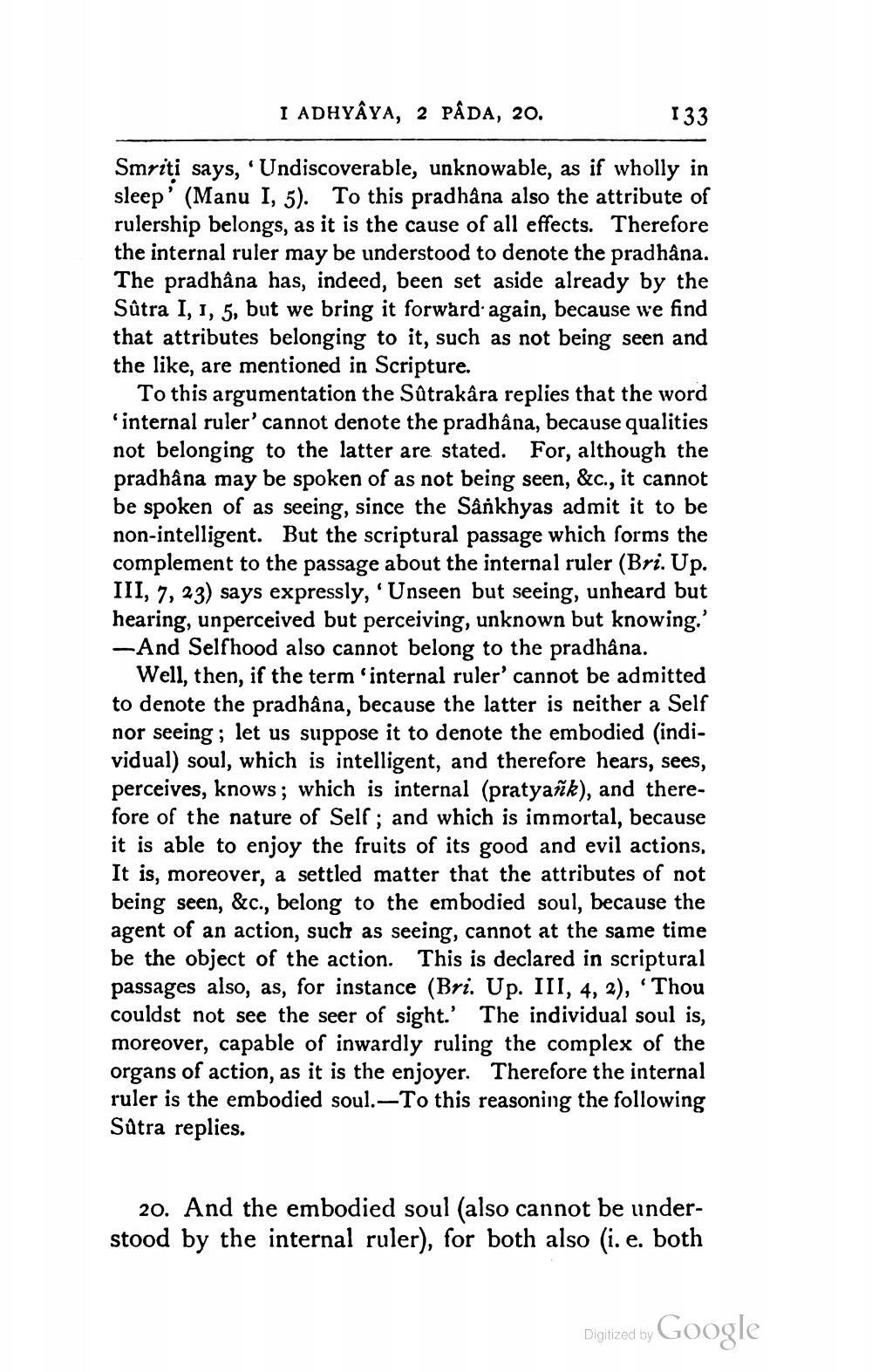________________
I ADHYAYA, 2 PÂDA, 20.
133
Smriti says, 'Undiscoverable, unknowable, as if wholly in sleep' (Manu I, 5). To this pradhana also the attribute of rulership belongs, as it is the cause of all effects. Therefore the internal ruler may be understood to denote the pradhâna. The pradhâna has, indeed, been set aside already by the Sûtra I, 1, 5, but we bring it forward again, because we find that attributes belonging to it, such as not being seen and the like, are mentioned in Scripture.
To this argumentation the Sûtrakâra replies that the word 'internal ruler' cannot denote the pradhâna, because qualities not belonging to the latter are stated. For, although the pradhâna may be spoken of as not being seen, &c., it cannot be spoken of as seeing, since the Sânkhyas admit it to be non-intelligent. But the scriptural passage which forms the complement to the passage about the internal ruler (Bri. Up. III, 7, 23) says expressly, 'Unseen but seeing, unheard but hearing, unperceived but perceiving, unknown but knowing.' -And Selfhood also cannot belong to the pradhana.
Well, then, if the term 'internal ruler' cannot be admitted to denote the pradhâna, because the latter is neither a Self nor seeing ; let us suppose it to denote the embodied (individual) soul, which is intelligent, and therefore hears, sees, perceives, knows; which is internal (pratyañk), and therefore of the nature of Self; and which is immortal, because it is able to enjoy the fruits of its good and evil actions, It is, moreover, a settled matter that the attributes of not being seen, &c., belong to the embodied soul, because the agent of an action, such as seeing, cannot at the same time be the object of the action. This is declared in scriptural passages also, as, for instance (Bri. Up. III, 4, 2), 'Thou couldst not see the seer of sight.' The individual soul is, moreover, capable of inwardly ruling the complex of the organs of action, as it is the enjoyer. Therefore the internal ruler is the embodied soul.-To this reasoning the following Sútra replies.
20. And the embodied soul (also cannot be understood by the internal ruler), for both also (i. e. both
Digitized by Google
Digitized by




